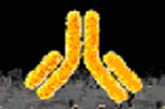Biosimilars
EMA approval for adalimumab biosimilars Amgevita and Solymbic
The European Medicines Agency’s (EMA) Committee for Medicinal Products for Human Use (CHMP) announced on 27 January 2017 that it had recommended granting of marketing authorization for the adalimumab biosimilars Amgevita and Solymbic.
Positive phase III results for adalimumab biosimilar from Coherus
A phase III study of an adalimumab biosimilar (CHS‑1420) from Coherus has reported that the biosimilar is ‘similar’ to AbbVie’s Humira (adalimumab), according to the company.
Position statement on approval of biosimilars in Latin America
The Fifth Latin American Forum on Biosimilars (FLAB) was held in Brasilia, Brazil in 2015 with the theme of ‘Interchangeability and Automatic Substitution’. Discussions centred on the approval of CT-P13, an infliximab biosimilar; and RTXM83, a proposed rituximab biosimilar, in both Brazil and Argentina. Following these discussions, Babini et al. [1] published a FLAB position statement on the approval of these monoclonal antibody biosimilars in the context of current regulations in these two Latin American countries.
Sandoz withdraws biosimilar pegfilgrastim application
The European Medicines Agency (EMA) announced on 27 January 2017 that Sandoz had withdrawn the marketing application for its pegfilgrastim biosimilar (Zioxtenzo), after the agency expressed doubts about its biosimilarity and manufacturing.
Assessing structural comparability using NMR
Several biologicals will lose patent protection within the next few years, opening up the market for biosimilars [1]. According to US Food and Drug Administration (FDA) guidelines, biosimilar applicants should demonstrate biosimilarity using a stepwise approach, which includes structural and functional characterization, animal toxicity, pharmacokinetics and pharmacodynamics, immunogenicity, and clinical safety and effectiveness [2]. FDA expects extensive characterization of the proposed biosimilar and the reference product using state-of-the-art analytical technology including analysis of the protein (primary, secondary, tertiary, quaternary structure as well as post-translational modifications).
EMA to launch pilot for tailored advice on biosimilars development
The European Medicines Agency (EMA) announced on 16 December 2016 that it is planning to provide sponsors with tailored scientific advice on the development of biosimilars as part of a pilot programme that will be launched in February 2017.
Biosimilars and treatment of IBD in Italy
In February 2015, the patent for infliximab expired in Italy. Now, biosimilar CT-P13 products (Remsima and Inflectra), the first monoclonal antibody biosimilar of infliximab, are on the Italian market. In their recent paper, Annese et al. [1], assessed gastroenterologist’s view of the use of CT-P13 for the treatment of inflammatory bowel disease (IBD) in Italy.
EC publishes improved biosimilars information for patients
On 23 January 2017, the European Commission (EC) published a unique question and answer (Q&A) document for patients containing reliable information on biosimilar medicines.
Boehringer Ingelheim submits biosimilar adalimumab application to both EMA and FDA
Germany-based Boehringer Ingelheim Pharmaceuticals (Boehringer Ingelheim) announced on 18 January 2017 that its candidate adalimumab biosimilar (BI 695501) had been accepted for regulatory review by both the European Medicines Agency (EMA) and the US Food and Drug Administration (FDA).
European IBD specialists support switching to biosimilars
The European Crohn’s and Colitis Organization (ECCO) has published results of a consensus meeting held on 15 October 2016 in Vienna, Austria in which they support switching from reference infliximab to biosimilar infliximab [1].












